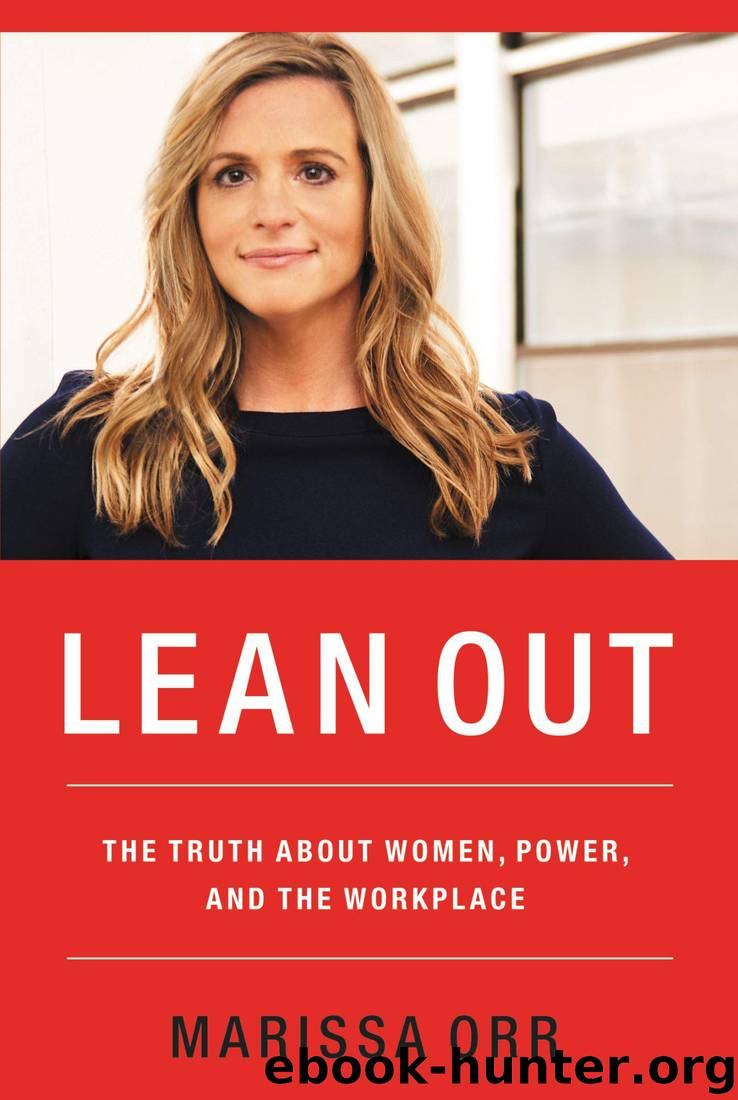Lean Out: The Truth About Women, Power, and the Workplace by Marissa Orr

Author:Marissa Orr
Language: eng
Format: epub
Tags: business, feminism
Publisher: HarperCollins Leadership
Published: 2019-06-11T04:00:00+00:00
WE DON’T LIKE SUCCESSFUL WOMEN
You need to be cold to be queen.
—BLAIR WALDORF, GOSSIP GIRL
In addition to not asking for things and being too nice, another explanation provided for the gender gap is the inverse correlation between success and likability for women. The more successful they become, the less others like them. The opposite is true of men, whose likability rises along with their success. This section examines the validity of this phenomenon, and more important, whether likability actually hurts women’s chances of success in the corporate world.
Many research studies and lab experiments confirm that women are liked less when they become successful. One of the most well-known studies that’s referred to throughout Lean In comes from Columbia Business School professor Frank Flynn and New York University professor Cameron Anderson, who divided students in half and asked each group to read the profile of a successful entrepreneur. The profiles given to the two groups were identical in every way, except for one important detail: in half of them, the person’s name was Heidi Roizen, and in the other half, Howard Roizen. The students rated the entrepreneur on several dimensions, such as competence and respect, and how likely they would be to hire or work for the person. While many of the ratings were equal, the students found Howard to be a more appealing colleague.22 This experiment and ones like it seem to provide compelling evidence that we do indeed find successful women less likable.
But if this were true, why is it that we love Oprah? And Ellen? And what about the adulation for Ruth Bader Ginsburg, whose status as a cultural icon recently inspired two separate movies that celebrate her life?
And is it only women who suffer a penalty for success? Ever heard the term “player hater”? As my hip-hop idol the Notorious B.I.G. says:
We have the playas, and we have the playa haters
Please don’t hate me because I’m beautiful baby23
Anyone who’s listened to a rap song knows that sometimes men face a negative reaction to their success. “Don’t hate the player—hate the game” is the repeated refrain of such men, and similar experiences extend far beyond the realm of hip-hop.
How do we reconcile the conflict between what the research says and real-life examples that contradict it? That people dislike successful women but so many love Oprah? That women are the exclusive victims of this penalty but that Biggie suffers too?
The answer is this: success doesn’t make a woman unlikable—a desire for dominance does. It betrays the expectation for women to be warm, communal, and cooperative. Sheryl Sandberg wasn’t penalized as a child for being successful but for being bossy.
In general, people don’t like being bossed around. But we like it even less when it comes from a woman. That doesn’t make this attitude okay or justify ignorant behavior. It’s wrong, and it sucks. However, we need to understand exactly what it is that sucks, so we can address it more effectively.
Now that we’ve specified what turns people off—not success
Download
This site does not store any files on its server. We only index and link to content provided by other sites. Please contact the content providers to delete copyright contents if any and email us, we'll remove relevant links or contents immediately.
The Rules Do Not Apply by Ariel Levy(4970)
On the Front Line with the Women Who Fight Back by Stacey Dooley(4873)
The Lonely City by Olivia Laing(4802)
Bluets by Maggie Nelson(4559)
The Confidence Code by Katty Kay(4264)
Three Women by Lisa Taddeo(3434)
Not a Diet Book by James Smith(3429)
Inferior by Angela Saini(3316)
Confessions of a Video Vixen by Karrine Steffans(3311)
A Woman Makes a Plan by Maye Musk(3255)
Pledged by Alexandra Robbins(3179)
Wild Words from Wild Women by Stephens Autumn(3154)
Nice Girls Don't Get the Corner Office by Lois P. Frankel(3048)
Brave by Rose McGowan(2826)
Women & Power by Mary Beard(2769)
Why I Am Not a Feminist by Jessa Crispin(2761)
The Girl in the Spider's Web: A Lisbeth Salander novel, continuing Stieg Larsson's Millennium Series by Lagercrantz David(2724)
The Clitoral Truth: The Secret World at Your Fingertips by Rebecca Chalker(2720)
I Who Have Never Known Men by Jacqueline Harpman(2671)
